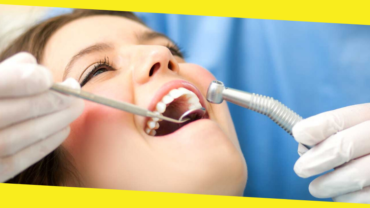Why Hormones Play a Crucial Role for Men in Aging Well

Energy is about how your body responds to the demands of aging, stress, and physical activity—not only about stamina. Men’s changes in mental clarity, reduced drive, and longer recovery following exercises can seem minor at first as they age. Those minor changes over time usually indicate a more profound inside-body shift brought about by hormonal equilibrium. Maintaining vitality, strength, and general wellness across every decade of life depends mostly on understanding and supporting that balance.
Hormonal Balance Dictates How Well You Maintain Muscle and Strength
Testosterone is essential for maintaining muscle mass and athletic ability. Strength, endurance, and the body’s capacity for recovery from physical exertion clearly change as levels drop with age. Even regular exercise gets more challenging when hormonal support declines and muscle mass often shrinks more quickly. Additionally, testosterone promotes protein synthesis, which is essential for maintaining lean mass and healing muscles after exercise. Reduced levels as part of aging can influence bone density, thereby raising or lowering joint instability risk. Supporting hormonal health guarantees that your body stays strong, physically fit, and resistant to the natural drop in muscle tone and structural strength.
Cognitive Clarity and Emotional Stability Depend Heavily on Hormonal Support
Aging has repercussions beyond merely physical ones. Maintaining brain clarity, cognitive ability, and emotional equilibrium depends critically on hormones. Testosterone affects neurotransmitter activity, including dopamine and serotonin, which directly impact your concentration and mood. Changes in mental sharpness usually come from declining hormone levels, which causes slower recall, less focus, and even emotional disorders, including impatience or low motivation. Reduced testosterone is strongly correlated with emotions of emotional disengagement and tiredness, which can affect personal as well as professional life. While supporting hormonal stability improves resilience against stress, mood swings, and mental fog sometimes linked with aging, it also helps retain cognitive abilities.
Metabolism and Fat Distribution Are Heavily Influenced by Hormonal Shifts
A well-balanced hormonal system determines how well your body stores fat and burns calories. The metabolism slows as testosterone lowers, which usually results in more fat accumulation—particularly around the abdomen. Along with appearances, this alteration influences insulin sensitivity and cardiovascular health. More internal or visceral fat resulting from changes in fat distribution strains organs more and increases health risks. Supporting testosterone generation can help to improve metabolic rate and promote a better body composition. In order to keep a better balance and lower undesired body fat, some men decide to include a natural testosterone supplement in their wellness program.
Libido, Reproductive Health, and Physical Intimacy Are Closely Tied to Hormonal Vitality
For a good reason—it directly affects libido, erectile function, and general reproductive vitality—testosterone is commonly linked with sexual health. Intimacy’s appeal may drop when levels decline, usually accompanied by changes in performance and satisfaction. These changes impact interpersonal dynamics as well as self-esteem and relationship dynamics. Hormonal imbalance disturbs the body’s natural rhythm of reproduction, which lowers sperm count and increases stamina loss. Maintaining normal testosterone levels supports a strong libido, consistent sexual performance, and reproductive function, which are all vital components of emotional well-being and personal fulfillment in the later stages of life.
Immune Strength and Overall Longevity Are Connected to Hormonal Health
A steady hormonal environment supports the immune system’s greatest performance. Testosterone helps control inflammation, generates red blood cells, and guards the body against harm brought on by stress. Declining hormone levels expose the body to increasing susceptibility to disease, infection, and poor healing from traumas. Additionally, a compromised immune system raises the risk of long-term illnesses like diabetes and cardiovascular disease. Hormonal health supports long-term vitality, resilience, and cellular repair. By ensuring that your hormone levels remain in balance, your body is able to fight off illness more effectively and recover more quickly, which contributes to a longer and more active lifespan.
Conclusion
Aging properly depends on internal systems working in unison, particularly hormones; it is not just about good habits. Your physical vitality, mental clarity, and emotional well-being all stay in harmony when your hormones are in balance, which enables you to navigate each stage of life with courage and clarity. Supporting this balance allows you to maintain control over your health, resist the negative effects of aging, and pursue what matters most with confidence and vitality.
Recommended For You
10 Myths About Root Canal Treatment
Most Inside
Most Inside offers high-quality recommendations and valuable updates to enhance all aspects of your life, providing premium guidance and enriching experiences.




